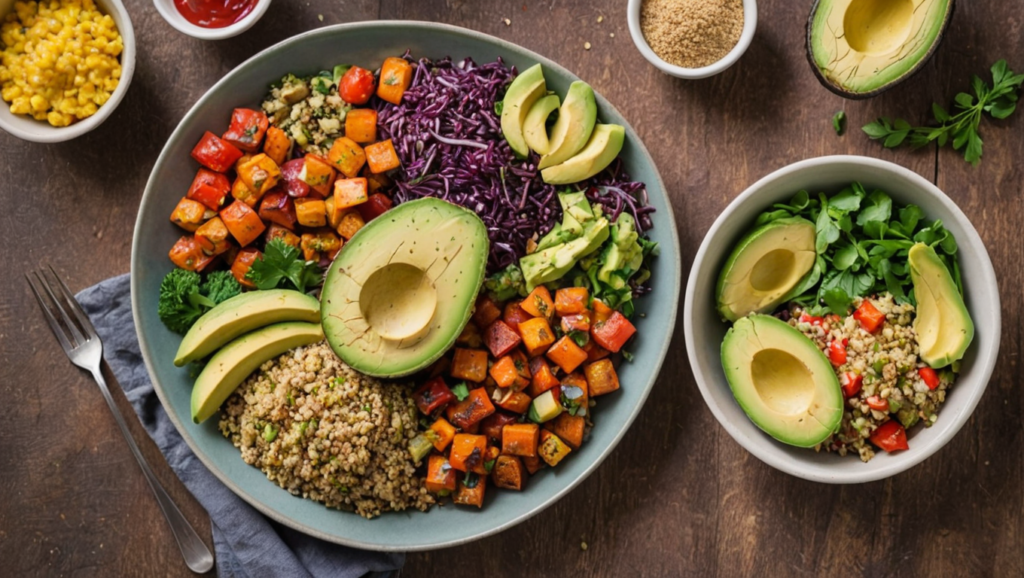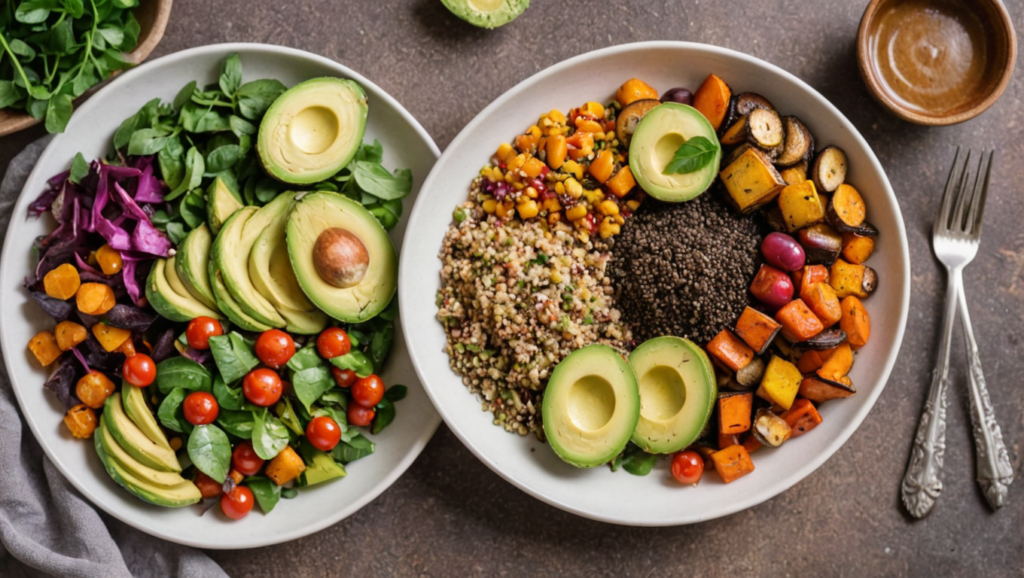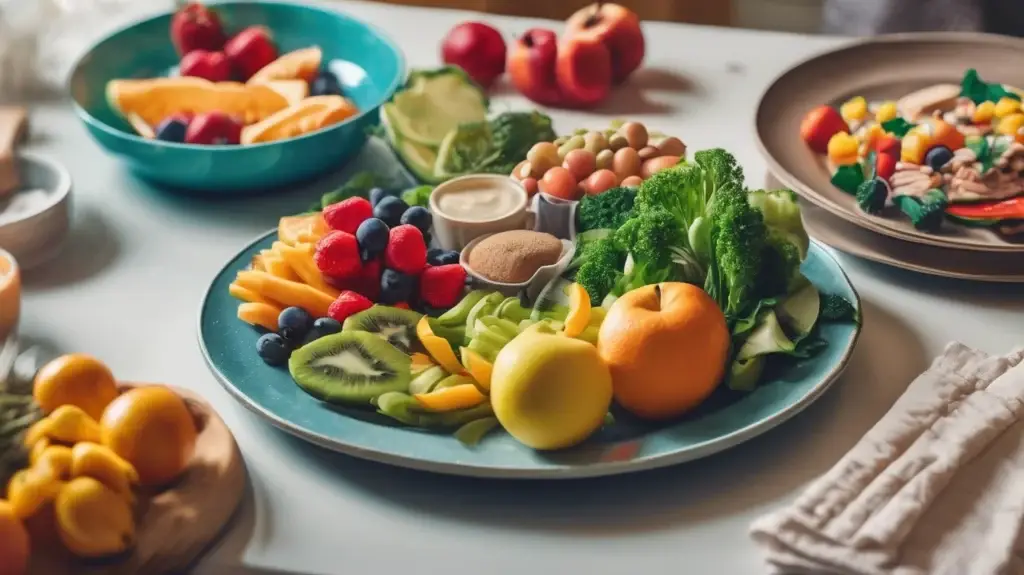A 1200-calorie diet helps you shed pounds, boost energy, and regain confidence with smart meal plans and balanced nutrition. This approach ensures you are consuming an adequate amount of calories while making healthier choices. Following a 1200-calorie diet can be an effective way to manage weight and improve overall health.

Table of contents

Introduction
Importance of Calorie Control for Health and Wellness
Calorie control is the foundation of maintaining a healthy body and lifestyle. By managing calorie intake, individuals can prevent weight gain, reduce the risk of chronic diseases like diabetes and heart conditions, and support overall energy levels. Calorie control also teaches mindfulness about food choices, promoting healthier eating habits.
Overview of the 1200-Cal Diet and Its Benefits
The 1200-Cal Diet is a structured, low-calorie meal plan designed to create a calorie deficit, aiding in weight loss. It is meticulously crafted to balance nutrients, ensuring individuals meet essential dietary requirements without exceeding the calorie limit. Benefits include:
The 1200-Cal Diet is specifically designed to promote weight loss while providing necessary nutrients. By adhering to a 1200-calorie diet, individuals can experience improved energy levels and greater mental clarity.
- Weight management and fat reduction
- Improved energy levels
- Better digestion and metabolism
- Enhanced mental focus and confidence
Target Audience for This Diet
The 1200-Cal Diet is ideal for individuals seeking effective weight loss, those with sedentary lifestyles looking to improve their health, and even active individuals needing a reset on eating habits. However, pregnant women, athletes, and individuals with specific medical conditions should consult a nutritionist before adopting this diet.
Section 1: Understanding the 1200-Calorie Diet
What Is a 1200-Calorie Diet?
The 1200-calorie diet limits daily caloric intake to 1200 calories while emphasizing nutrient-rich foods like fruits, vegetables, lean proteins, and whole grains. This diet is designed to meet the body’s energy needs without surplus calories, enabling gradual and sustainable weight loss.
If you are exploring various dietary options, consider the benefits of the 1200-Cal Diet. It is a strategic plan that focuses on calorie control and balanced nutrition.
The 1200-Cal Diet is not just a fleeting trend; it embodies a sustainable lifestyle change that fosters health and well-being.
Scientific Rationale Behind Calorie Restriction
Many individuals have successfully transformed their lives by committing to a 1200-calorie diet. Their experiences highlight the effectiveness of this approach.
Calorie restriction works by creating a deficit between calories consumed and calories burned. As the body requires energy for survival, this deficit forces it to utilize stored fat, resulting in weight loss. Studies show that calorie-controlled diets improve metabolic health, insulin sensitivity, and heart health.
Adopting a 1200-calorie dietdiet means prioritizing nutrient-rich foods to ensure your body gets the energy it needs while maintaining a calorie deficit.
Benefits of Adopting a Structured Calorie-Controlled Diet
Implementing a 1200-calorie dietdiet can lead to significant improvements in your metabolic health and overall well-being. Many find that following a 1200-calorie dietdiet not only aids in weight loss but also enhances their mood and energy.
- Effective Weight Loss: Helps in shedding excess pounds steadily and safely.
- Increased Energy Levels: Encourages eating nutrient-dense foods that provide sustained energy throughout the day.
- Improved Mental Health: The discipline of meal planning and portion control builds confidence and self-esteem.
- Healthier Digestion and Metabolism: Promotes better absorption of nutrients while keeping digestion efficient.
Section 2: Key Elements of the Meal Plan
Macronutrient Distribution: Carbs, Proteins, and Fats
A balanced macronutrient distribution ensures individuals receive adequate energy and essential nutrients. Here’s an ideal breakdown:
- Carbohydrates (40-50%): For energy. Focus on whole grains, vegetables, and fruits.
- Proteins (20-30%): For muscle repair and growth. Include lean meats, tofu, eggs, and legumes.
- Fats (20-30%): For hormone regulation and cell functions. Opt for healthy fats from nuts, seeds, and avocados.
Importance of Portion Control and Tracking Calories
Portion control helps prevent overeating and ensures the diet remains within the calorie limit. Tools like food scales, measuring cups, and mobile apps such as MyFitnessPal can simplify this process. Tracking calories provides awareness and accountability, making the diet more effective.
Essential Vitamins and Minerals for Balanced Nutrition
Meeting micronutrient needs is crucial on a low-calorie diet. Some essential vitamins and minerals to focus on include:
- Vitamin A: Supports vision and immunity. Found in carrots, sweet potatoes, and spinach.
- Vitamin C: Boosts immunity and collagen production. Citrus fruits and bell peppers are rich sources.
- Vitamin D: promotes bone health. Fatty fish and fortified foods are great options.
- Calcium: Strengthens bones and teeth. Found in dairy products, tofu, and almonds.
- Magnesium: Supports muscle function and energy production. Include whole grains, nuts, and seeds.
Sample Meal Plan 1: Balanced and Simple
Breakfast:
- Scrambled eggs with spinach and whole-grain toast (200 calories)
- Black coffee or herbal tea (0 calories)
Lunch:
- Grilled chicken salad with olive oil dressing (300 calories)
- A side of steamed vegetables (50 calories)
Dinner:
- Baked salmon with quinoa and sautéed kale (400 calories)
Snacks:
- Greek yogurt with honey (100 calories)
- Fresh carrot sticks with hummus (120 calories)
Sample Meal Plan 2: Vegetarian-Friendly
Breakfast:
- Oats cooked with almond milk, topped with chia seeds and fresh berries (200 calories)
Lunch:
- Lentil soup with a slice of whole-grain bread (320 calories)
Dinner:
- Quinoa stir-fry with tofu, broccoli, and bell peppers (400 calories)
Snacks:
- Roasted chickpeas (100 calories)
- Apple slices with almond butter (120 calories)
Sample Meal Plan 3: Vegan Option
Breakfast:
- Smoothie made with almond milk, spinach, banana, and peanut butter (200 calories)
Lunch:
- Avocado and black bean wrap using whole-grain tortilla (320 calories)
Dinner:
- Roasted sweet potatoes with mixed green salad and tahini dressing (400 calories)
Snacks:
- Handful of almonds (100 calories)
- Cucumber slices with guacamole (120 calories)
Sample Meal Plan 4: Gluten-Free
Breakfast:
- Scrambled eggs with avocado slices (200 calories)
Lunch:
- Grilled chicken breast with cauliflower rice and green beans (350 calories)
Dinner:
- Pan-seared shrimp with mashed sweet potatoes and asparagus (400 calories)
Snacks:
- Hard-boiled egg (70 calories)
- Fresh orange or clementine (50 calories)
Section 4: Tips for Maintaining Energy and Confidence
Strategies to Prevent Fatigue and Stay Energized
Following a low-calorie diet can sometimes lead to fatigue if not managed properly. Incorporating these strategies helps sustain energy levels:
- Choose Complex Carbs: Opt for whole grains like quinoa and oats that provide slow-releasing energy.
- Prioritize Protein: Include lean proteins like eggs, fish, and legumes to support muscle repair and satiety.
- Incorporate Healthy Fats: Consume nuts, seeds, and avocados to keep your body fueled longer.
- Meal Timing: Spread meals evenly throughout the day to avoid energy dips.
Importance of Hydration and Exercise
Water plays a critical role in digestion, metabolism, and maintaining energy levels. Aim to drink 8-10 glasses daily. Include herbal teas and infused water for variety.
Exercise complements the 1200-calorie diet by improving metabolism and boosting mood. Try:
- Moderate activities like walking, jogging, or yoga.
- Strength training twice a week to maintain muscle mass.
Practical Tips for Maintaining Motivation and Confidence
- Visualize Goals: Picture yourself achieving your ideal health and fitness milestones.
- Track Progress: Use apps or journals to monitor weight, measurements, and energy levels.
- Celebrate Small Wins: Acknowledge incremental achievements, like sticking to the plan for a week.
- Find Support: Join groups or forums where individuals share their journey.
- Stay Positive: Remind yourself of why you started and the benefits you’re experiencing.
Section 5: Success Stories and Expert Opinions
Real-Life Testimonials of Individuals Who Transformed Their Lives
Stories of people who adopted the 1200-calorie diet inspire others to start their journey:
- Aarti’s Story: A working mother lost 10 kg in 3 months and reported feeling more energetic to manage her daily responsibilities.
- Rajesh’s Journey: A corporate professional successfully regained his focus and confidence through structured meal planning.
Expert Recommendations from Nutritionists and Fitness Coaches
Nutritionists emphasize the importance of variety and balance in a low-calorie diet. Dr. Sita Sharma, a registered dietitian, says, “Combining the diet with mindful eating ensures sustained results.” Fitness coaches advocate pairing the diet with regular physical activity to optimize benefits.
Common Challenges and How to Overcome Them
Challenge 1: Feeling hungry throughout the day. Solution: Choose fiber-rich foods and protein-packed snacks to stay full.
Challenge 2: Difficulty socializing during meals Solution: Plan ahead and choose lighter options when dining out or at gatherings.
Challenge 3: Plateau in weight loss Solution: Incorporate interval training into your exercise routine and reassess your meal composition.
Section 6: FAQs and Misconceptions
Addressing Common Questions About the 1200 Calorie Diet
- Can I follow the 1200-calorie diet long-term? The 1200-calorie diet is effective for short-term weight loss. However, it’s best to consult a nutritionist for long-term maintenance or personalized adjustments.
- Will I feel hungry while on this diet? Initially, you may feel hungry, but incorporating protein, fiber, and healthy fats into your meals can help you stay fuller longer.
- Is this diet suitable for everyone? While the 1200-calorie diet works for many, it’s not recommended for pregnant women, children, or individuals with specific medical conditions without medical advice.
- How quickly will I see results? Results vary depending on factors like metabolism, activity level, and adherence. Many see noticeable changes within 2–4 weeks.
- Can I exercise while on this diet? Yes, light to moderate exercise is encouraged. However, listen to your body and adjust intensity as needed.
Debunking Myths and Setting Realistic Expectations
- Myth: “Low-calorie diets make you lose muscle instead of fat.” Reality: Adequate protein intake and strength training help preserve muscle mass while losing fat.
- Myth: “Eating fewer calories means faster weight loss.” Reality: Drastic calorie reduction can slow metabolism and lead to fatigue. A balanced approach is key.
- Myth: “You don’t need to worry about nutrient balance on a low-calorie diet.” Reality: Micronutrients are crucial for health, especially on restricted diets. Opt for nutrient-dense foods.
- Myth: “The 1200-calorie diet is only about weight loss.” Reality: Beyond weight loss, this diet promotes mindful eating, better energy levels, and improved self-discipline.
By addressing these FAQs and myths, individuals can set realistic expectations and follow the 1200-calorie diet with confidence.
Conclusion
Recap of the Benefits and Strategies for Success
The 1200-calorie diet is a structured and empowering approach to achieving weight loss, boosting energy, and building confidence. By focusing on balanced nutrition, portion control, and mindful eating, this diet offers a sustainable path to better health. Coupled with hydration, exercise, and a positive mindset, success becomes not just possible ut inevitable.
Encouragement to Start the Journey Towards Better Health and Confidence
Your health journey begins with a single step—choosing yourself and your well-being. The 1200-calorie diet is more than a meal plan; it’s a transformative experience that empowers you to take control of your body, mind, and life. Start small, stay consistent, and celebrate every achievement along the way. Your healthier, more confident self is just a meal away!
With the 1200-Cal Diet, individuals often report increased motivation and a clearer understanding of their nutritional needs.
Exploring success stories related to the 1200-Cal Diet can provide inspiration and practical tips for those looking to make a change.
Nutritionists frequently recommend the 1200-Cal Diet as an effective strategy for those aiming to lose weight while maintaining a balanced diet.
Transitioning to the 1200-Cal Diet may involve some initial challenges, but the long-term benefits often outweigh these temporary adjustments.
Success on the 1200-Cal Diet can be significantly enhanced through support systems, such as friends or online communities.
Tracking your journey on the 1200-Cal Diet allows for a clearer view of progress and areas for improvement.
Overcoming misconceptions about the 1200-Cal Diet is essential for those considering this diet; understanding its principles can lead to better adherence.
By following the 1200-Cal Diet, you can embark on a rewarding journey toward improved health and self-confidence.



